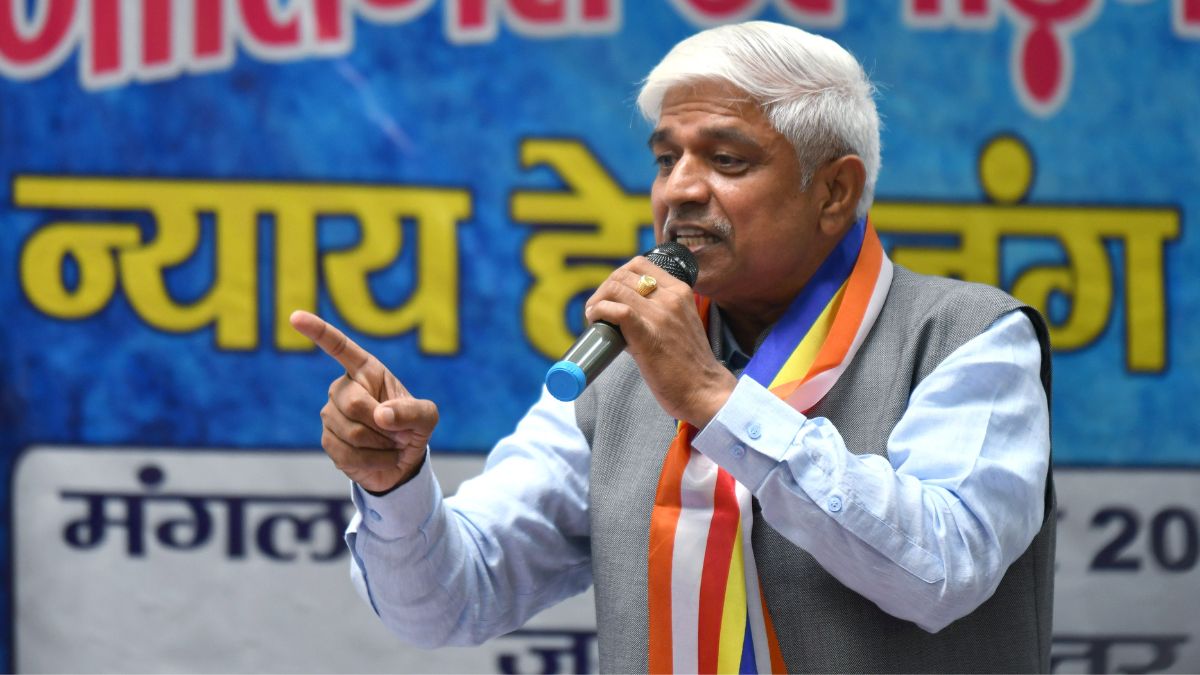Rajendra Pal Gautam, a prominent Dalit leader and former minister in the Aam Aadmi Party (AAP) government in Delhi, has resigned from the party, citing the party’s failure to prioritize social justice. This decision comes ahead of the Delhi assembly elections scheduled for early next year, and marks a significant blow to AAP, already grappling with a series of departures.
Leaving for a Larger Fight: Gautam’s Rationale
Gautam’s resignation letter, addressed to jailed AAP Chief Minister Arvind Kejriwal, articulates his decision to leave the party for “accelerating the struggle for social justice.” He specifically alleges that AAP, under pressure from the ruling Bharatiya Janata Party (BJP), has neglected the interests of the Dalit community. This allegation of inaction on social justice issues forms the crux of his decision to part ways.
Gautam’s three-page resignation letter points to AAP’s silence on crucial issues like caste-based census and representation of marginalized communities. His decision, in his own words, reflects a shift in focus – a desire to engage in a more direct and impactful struggle for social justice, even if it means leaving the party he was once a part of.
The Role of BJP’s Influence
Gautam’s accusation of AAP succumbing to pressure from BJP’s ideology further emphasizes the context of his decision. He views the prevailing atmosphere of rising religious and caste frenzy, allegedly fostered by BJP, as a threat to social justice. His assertion suggests a sense of disappointment with AAP’s inability to actively counter these forces, leading him to believe that his aspirations for social change are better served elsewhere.
A Shift in Political Landscape: Joining the Congress Party
Following his resignation from AAP, Gautam joined the Indian National Congress, a party known for its commitment to social justice and inclusivity. He highlights the significance of Rahul Gandhi’s ‘Bharat Jodo Yatra’ slogan – “Main nafrat ke baazar mein mohabbat ki dukaan kholne aaya hoon,” which resonates deeply with his vision of combatting hatred and promoting inclusivity.
His decision to join Congress reflects a deliberate choice to align himself with a party that he believes can effectively address the social justice concerns he is passionate about. This move is a testament to his belief that Congress, under Rahul Gandhi’s leadership, offers a better platform for championing the interests of the marginalized communities, especially Dalits.
Implications for the Delhi Elections: AAP’s Loss and Congress’ Gain
Gautam’s exit, coinciding with the approaching assembly elections, signifies a considerable loss for AAP. His significant standing within the party, having served as a minister and MLA for two terms, makes his departure a matter of concern. The departure further highlights the growing internal tensions and dissatisfaction within AAP, particularly concerning its approach to social justice issues.
On the other hand, Gautam’s joining Congress strengthens their ranks, particularly amongst the Dalit community. His prominence and commitment to social justice are likely to bolster Congress’ standing in the elections, potentially attracting votes from disenchanted Dalit voters who felt neglected by AAP.
The Future of Social Justice in Delhi Politics: A Change in Dynamics
Gautam’s departure from AAP and subsequent joining of Congress reveals a crucial shift in the political landscape of Delhi. His decision symbolizes the rising importance of social justice as a major campaign issue in the upcoming elections. His commitment to promoting inclusivity and equality has thrust social justice concerns into the spotlight, pushing other parties to take a clear stance on these matters.
This shift in the political landscape is expected to trigger further conversations and actions around social justice, holding significant implications for the future of Delhi politics. Whether AAP can effectively respond to these concerns or whether Congress can capitalize on this opportunity to consolidate its position remains to be seen.
Take Away Points:
- Rajendra Pal Gautam’s departure from AAP reflects the party’s struggles to address social justice concerns effectively.
- Gautam’s decision to join Congress highlights his commitment to fighting for the rights of marginalized communities.
- This move significantly impacts the upcoming Delhi assembly elections, potentially benefiting Congress and posing a challenge for AAP.
- Gautam’s decision emphasizes the rising importance of social justice in Delhi politics, forcing parties to address these concerns directly.









